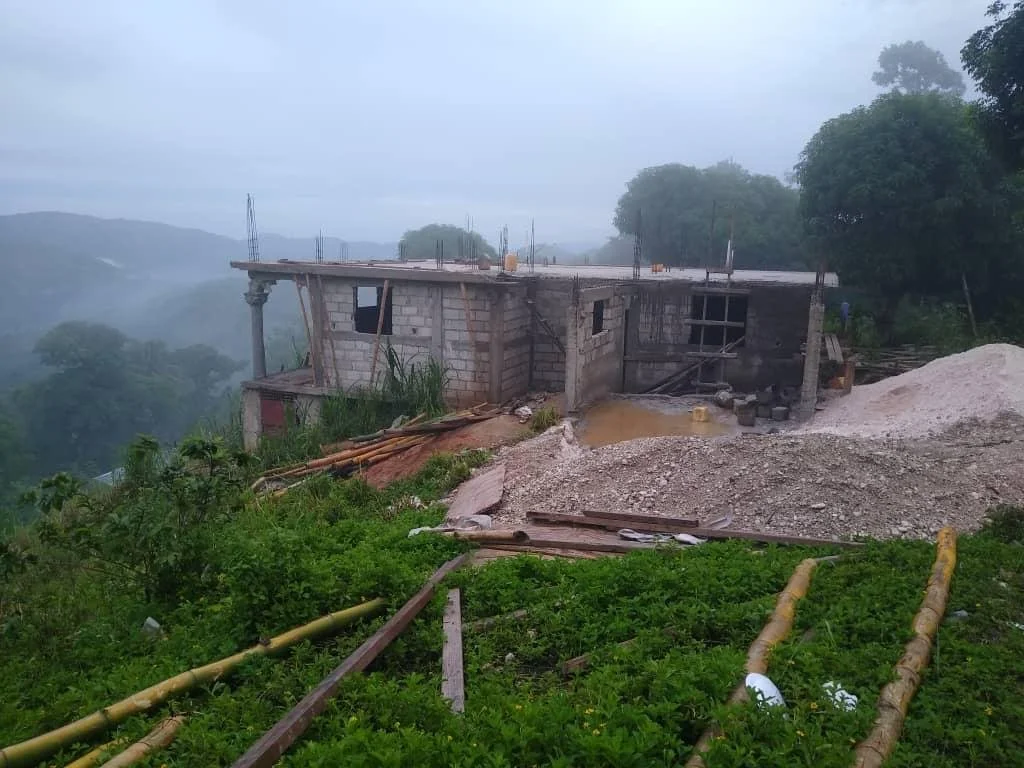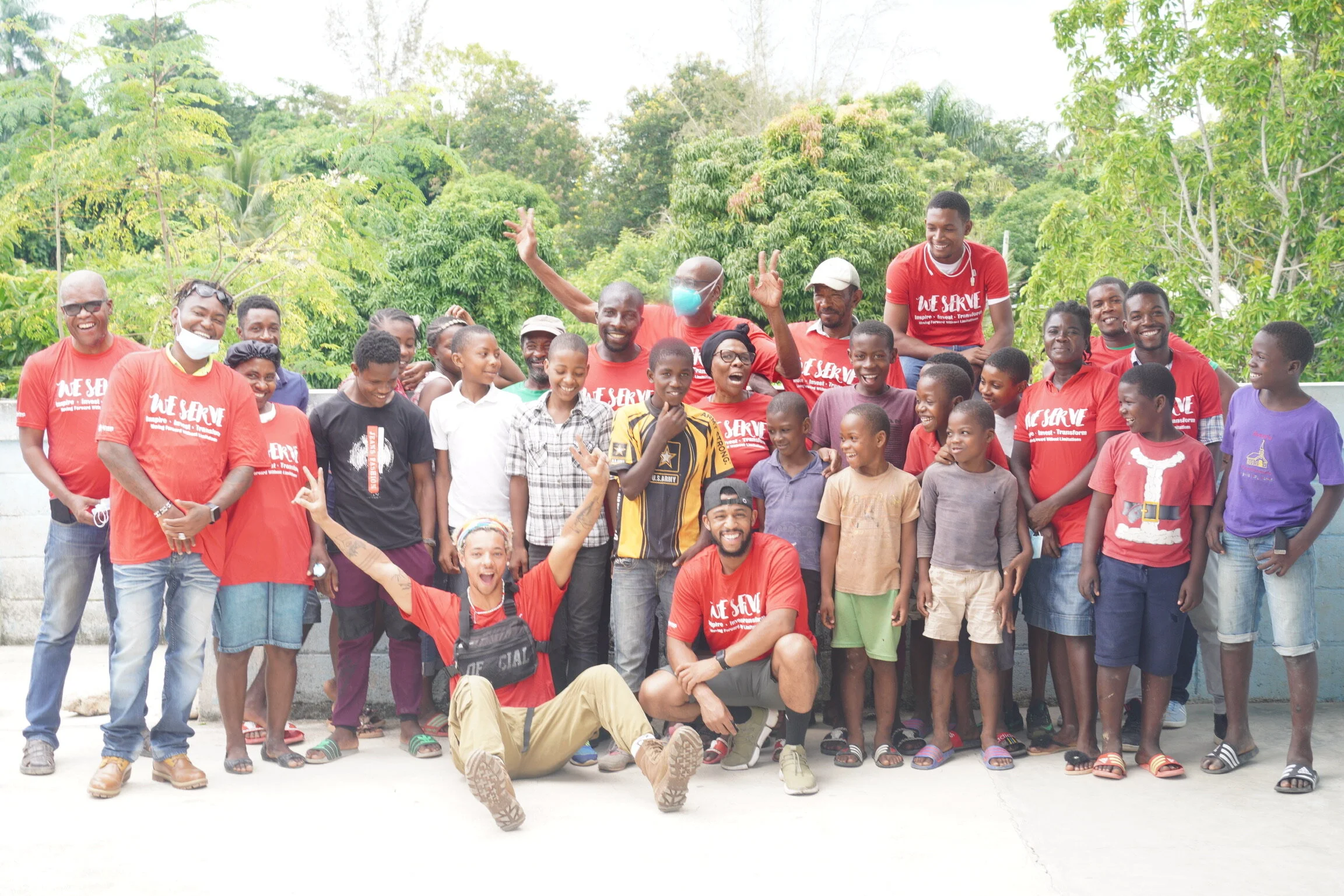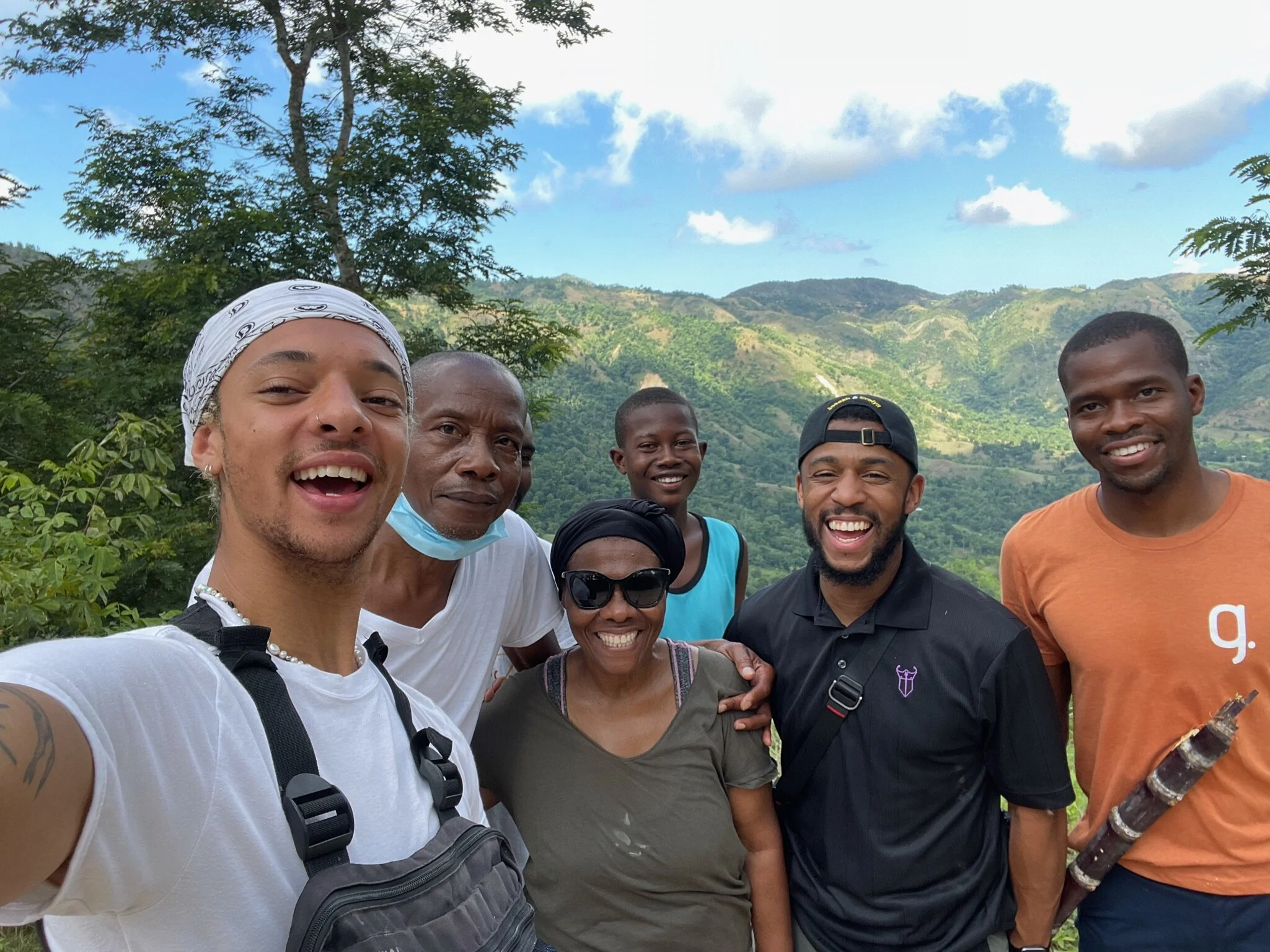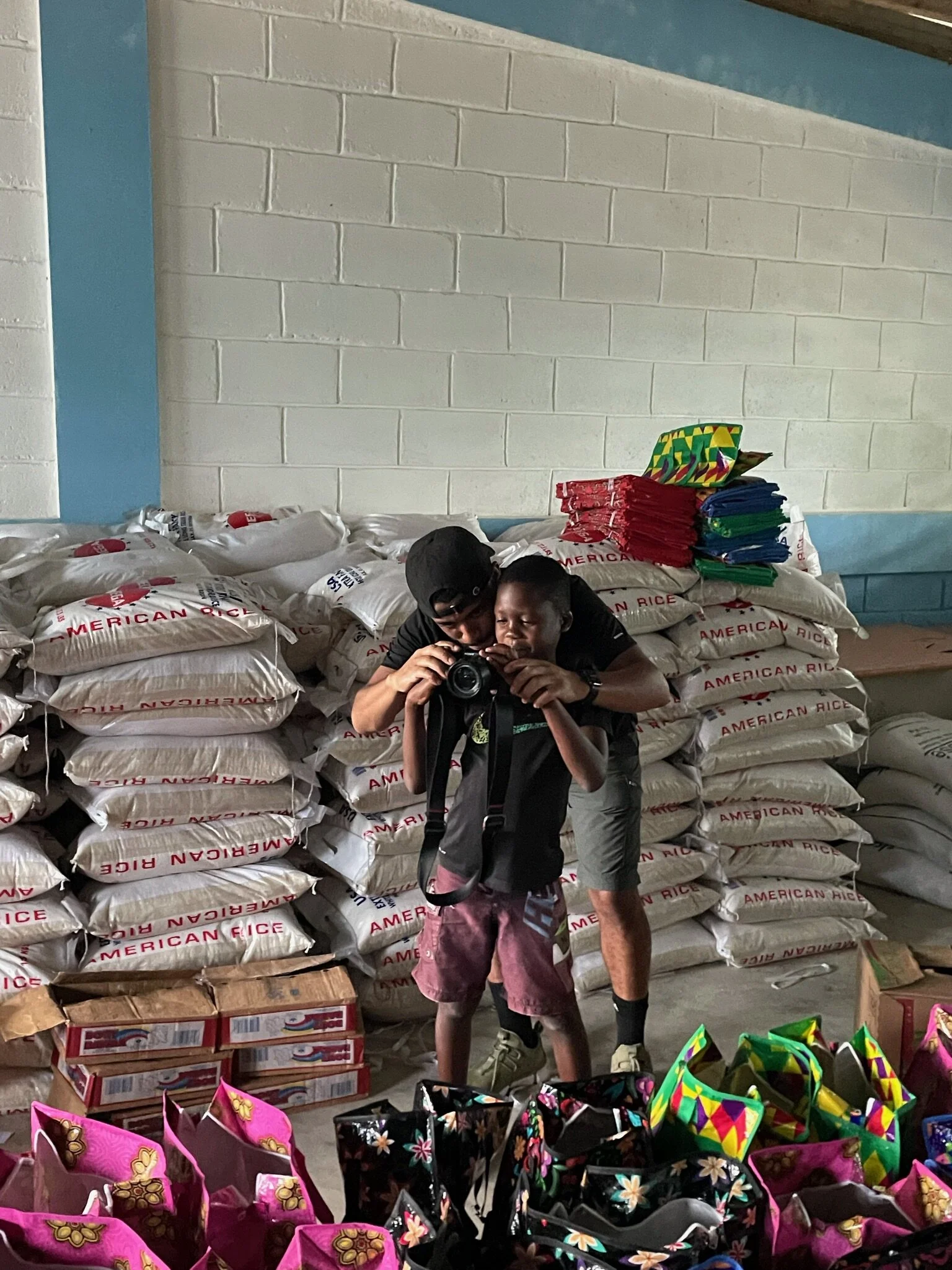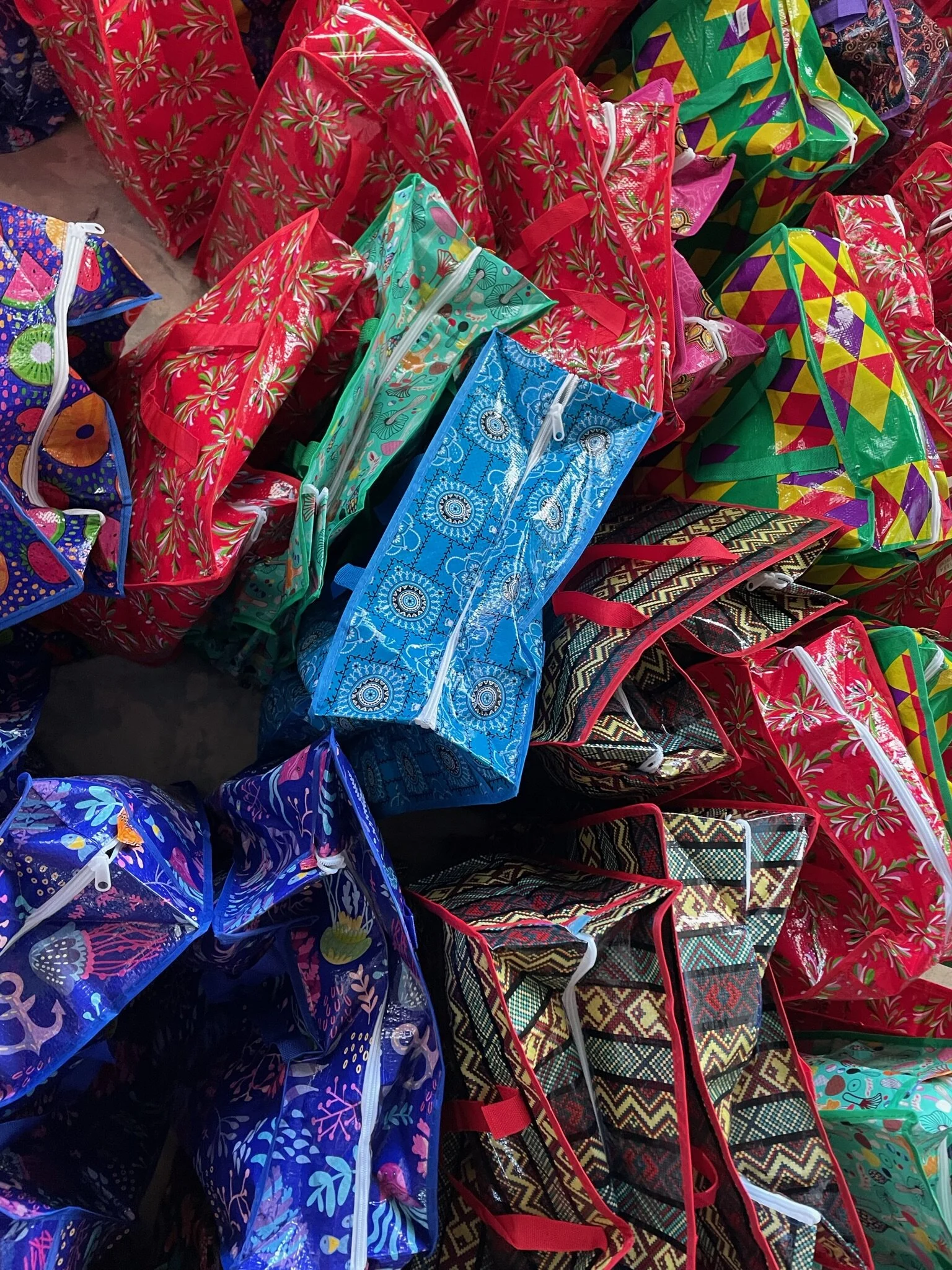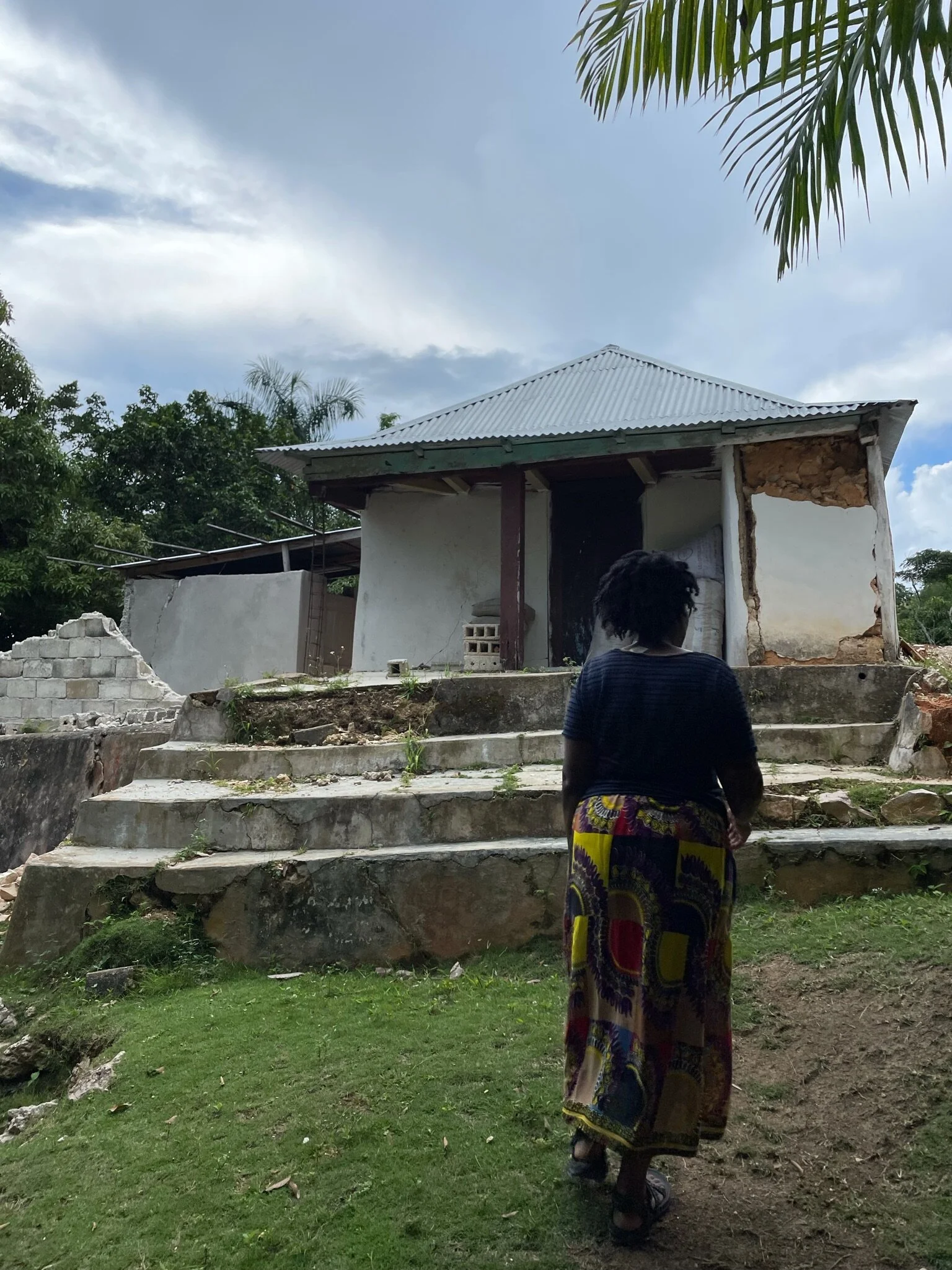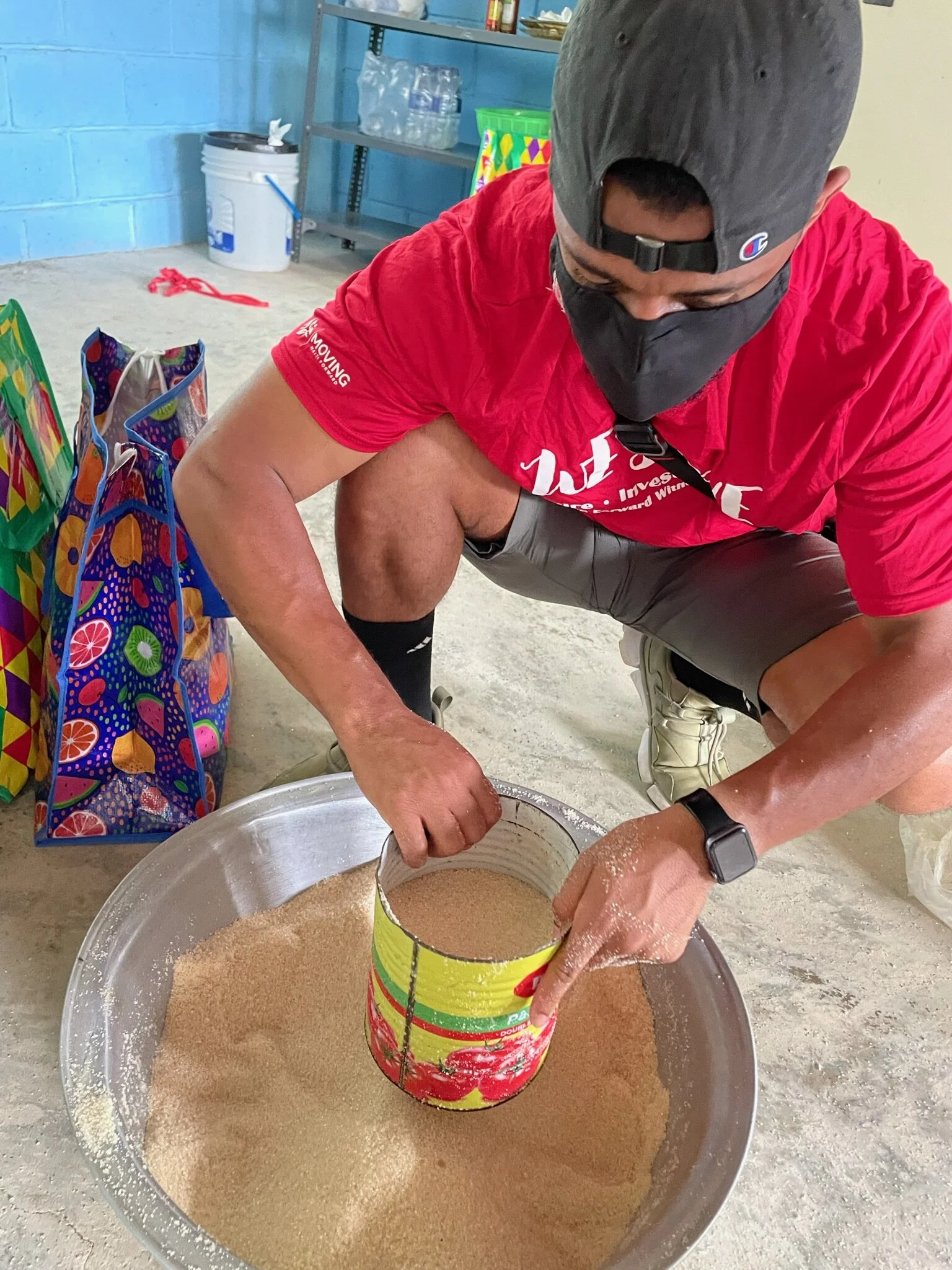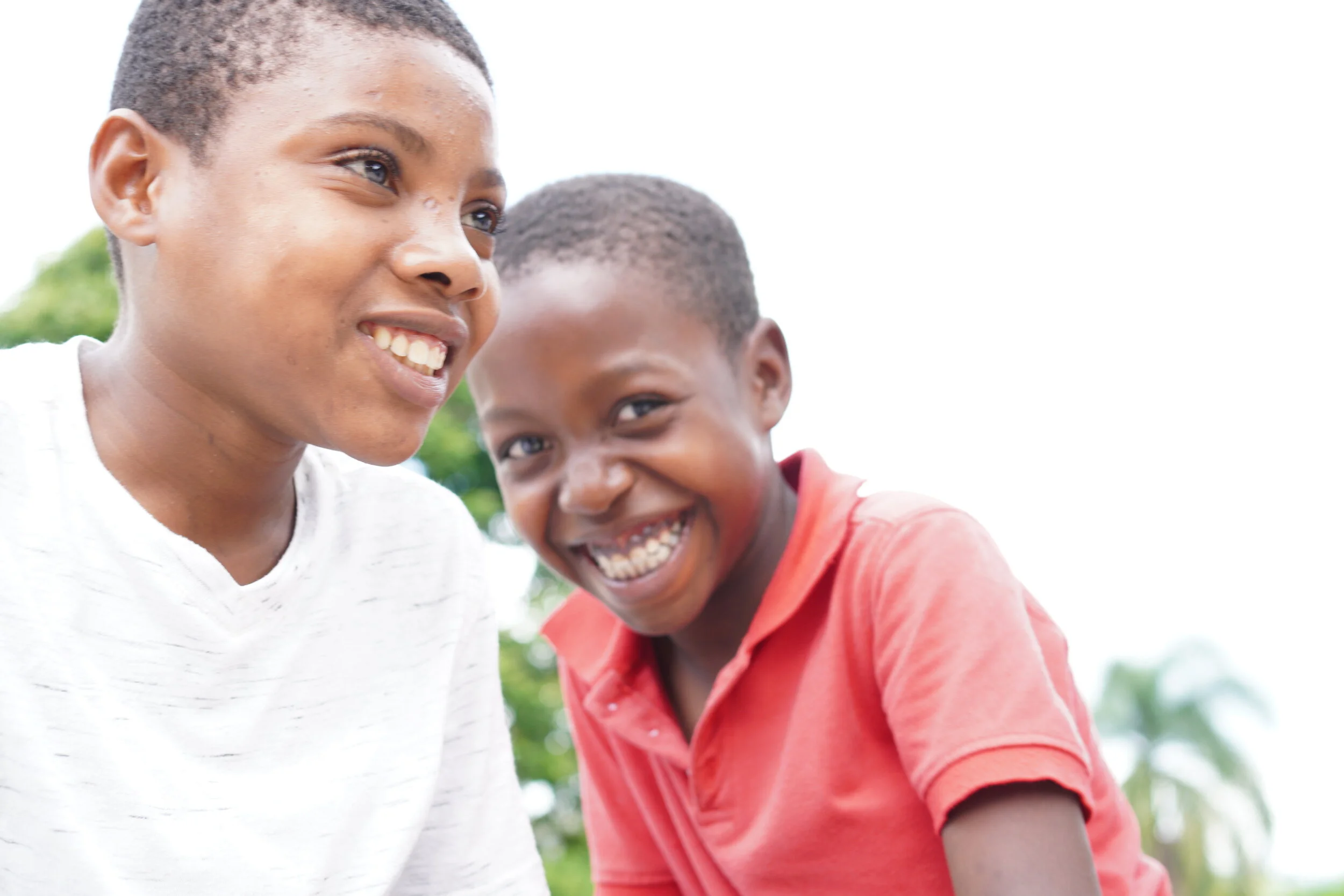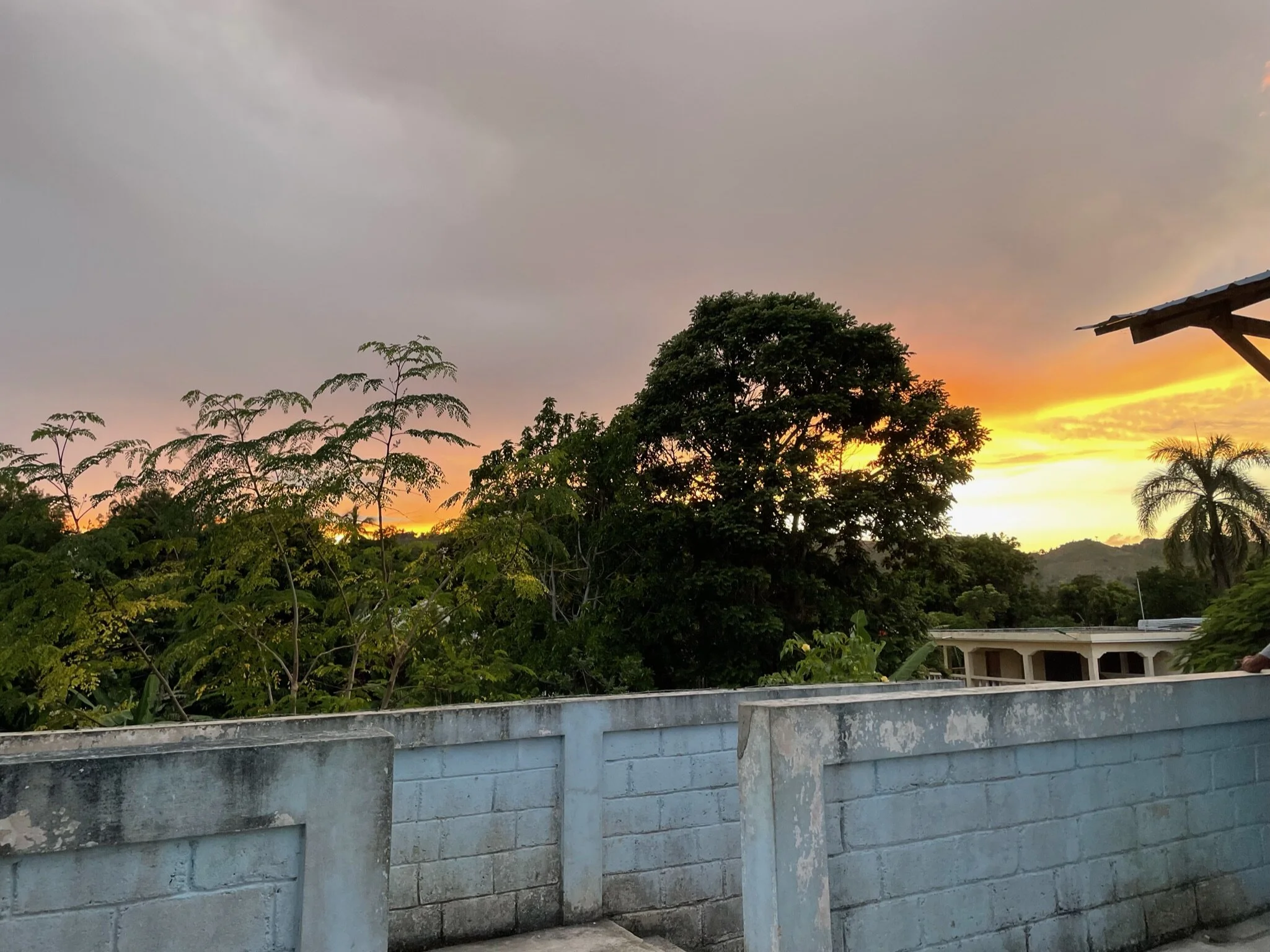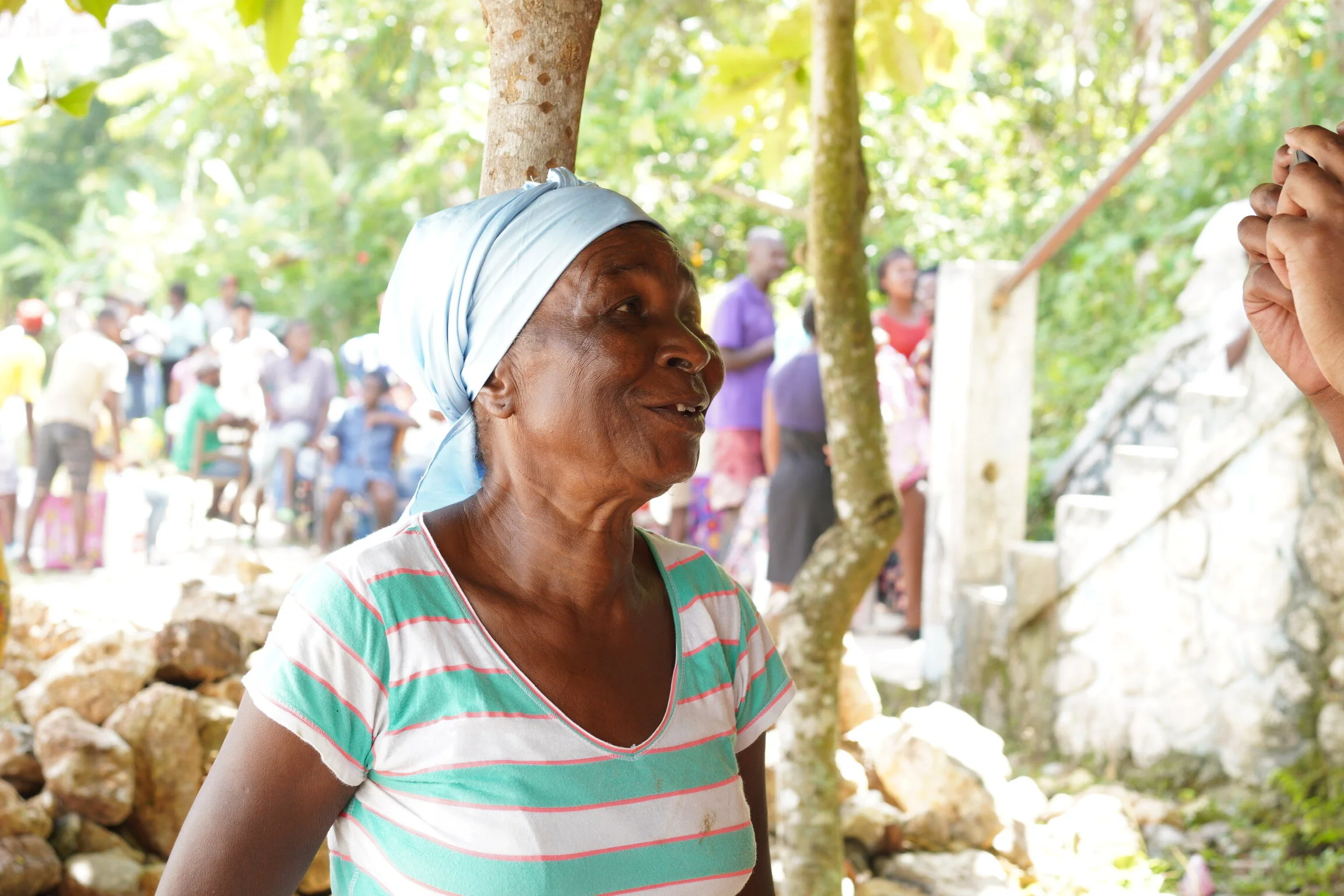Part I: Voyage to Sud:
On September 25th, we safely arrived in Port-au-Prince after a long journey from Atlanta due to unfortunate flight delays and cancellations. In Port-au-Prince, we stayed at a hotel close to the airport and met our operations director to go over the logistics for the distribution program. The next day we boarded a small, 30-seat plane and took off towards Les Cayes.
On most occasions, we would drive to Les Cayes, but because of the current security concerns, we took a short 30-minute plane ride. After landing, our volunteers, Devante, Christian Smith and me, jumped on the back of pick-up truck and set out 2.5 hours up mountainous terrain to Sud. We drove through Les Cayes and Cavaillon and saw the immense damage left by the earthquake. Homes and buildings were replaced by rubble and shattered glass. There was a prominent Catholic Church that was totally demolished, but somehow the pulpit still stood. Temporary shelter communities were spotted next to rubble and. I also noticed how quickly people tried to returned to some form of normalcy. Some folks were walking about, others were still in church services or at home seated on chairs next to tents because most are still afraid to sleep indoors because of the aftershocks.
We continued and stopped at the nearest health clinic to the community in Sud. It was 2 hours away by car and many more hours by foot, highlighting the need for a permanent health facility in Sud.
As we drove we also took in breathing views after breathtaking views. Cameras couldn’t quite capture Haiti’s beautiful backdrop of mountains, hills and lush vegetation. That’s the Haiti not portrayed in media, the Haiti that we want everyone reading this to see, enjoy and understand why Haiti was known as the “Pearl of the Antilles.”
Part II: Our Relief Work
When we arrived in Sud, our Founder, Myriam Leonidas, gathered volunteers at the local school. She gave out instructions and the team got to work; The young kids in the community also joined, and we started sorting sacks of rice, bottles of oil, pounds of sugar, packs of spaghetti and soap into individual packages. After 4-5 hours, we successfully packed 300+ bags to distribute to families the next day.
In advance of the trip, our volunteers identified families who required the most need and gave out one card per family. Families with cards were guaranteed to receive a food package. On the day of the distribution, 400+ people lined up outside of the school. We let people into the school by groups of ten with elderly and women entering first. We had people managing the lines, making sure that the process was as orderly as possible, but many people without cards also came, highlighting the immediate needs of the community. We let people into the school by groups of ten with elderly and women entering first. I spoke to several people who walked 3-7 hours just to get food. The resources were a lifeline for them and their children. One young man, told me that a wall almost collapsed on him during the earthquake. After the earthquake, he slept outside with his family and had limited food supplies, so he traveled miles to help feed his family. One by one, people walked out with food and waited for motorcycles to assist with transportation. Others rested for some time before walking back home, lifting rice bags on the top their heads.
Those without cards lingered around the gates of the school, hoping that there would be leftover food, which we promised to give them if any remained. One elderly women came by the gate, not asking for food but instead asked for money to pay for her daughter’s hospital bill. These are one of the many stories that you hear on the ground.
Three hours after we began, we successfully and smoothly distributed all of the food packages. We then let those enter with cards and gave them oil, rice and packs of spaghetti that remained. Unfortunately, we weren’t able to serve everyone, but in the end, we were able to feed 300+ families thanks to all of our supporters. After we completed the distribution, we met with the staff and thanked them and passed out lollipops and skittles to kids in the community.
Part III: Community & Assessment
The last day of our trip was devoted to learning and understanding more about the community and the needs. We visited other community members and saw their homes: sides of homes completely gone, furniture destroyed, interior walls cracked or completely caved-in.
When we first arrived in Sud we traveled down to my grandparents home. The only thing intact was bathroom that we recently built. This is the reality of most people in Sud, so rebuilding will take time, but time is running out because the rainy season will soon arrive, and there is no protection from the rain.
Before we left Sud, we surveyed the land where the health clinic and community center will be built. The next phase of our work on the ground will be devoted to sustainability. Our goal is to raise funds to build the clinic and center so that when the next disaster hits the most remote communities in Haiti will be prepared.
We spoke to the young people in the community community and asked about their sentiments towards the country and the situation on the ground. They are hopeless, not seeing a future in Haiti. Not out of choice, (who wants to leave their homelands), but out of necessity. Their main response is that only Christ and Christ alone can save Haiti now. And through Christ with the support of you all, Haiti can move forward from the ground up.
We played soccer with the kids and this ingenious tire game where you keep a tire rolling by guiding it with a stick and piece of plastic. We were utterly horrible at the game. At night, we star gazed. Personally, I had never seen stars so bright and numerous in my life. The sky was so bright and the stars so overwhelmingly brilliant. We literally felt like we could reach up and grab a star from it’s place in the sky.
While still dark, we traveled back to the airport reflecting on the conversations we had, the love we felt, and the resilience we witnessed from the community. Though the night and darkness hovers over Haiti, we don’t have to wait for the day. We will start with one star, one community until many more fill the sky until the sun rises again. Thank you from the bottom of our heart for all the support and special thanks to our volunteers who risked their own safety to ensure we were safe and the food and resources arrived on time. Next trip will be next month, in November, so more stories to come!
